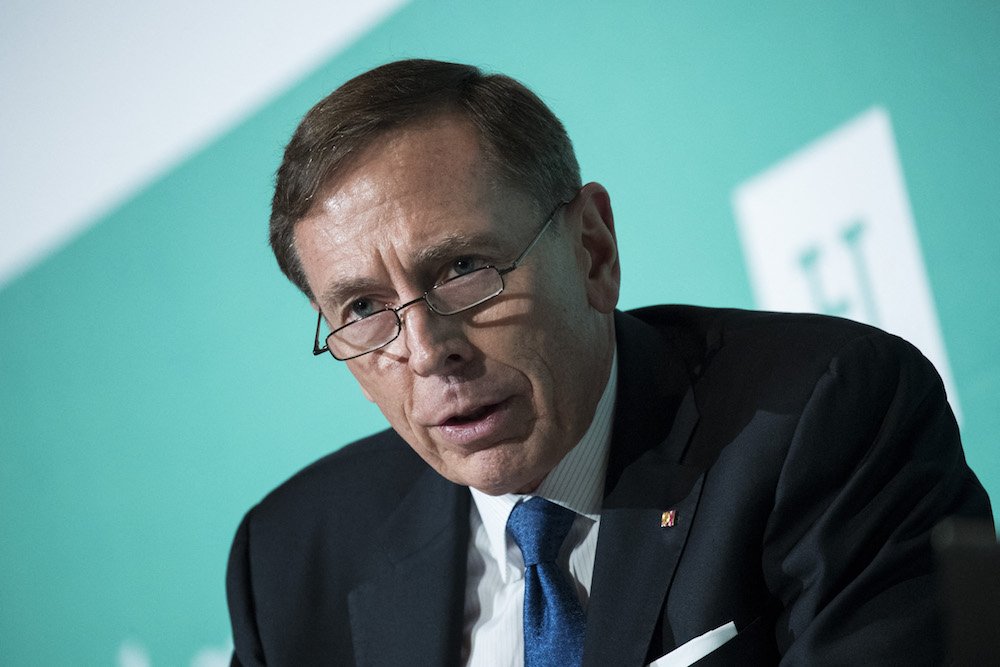LONDON: A former US military commander warned that the Taliban has allowed Al-Qaeda to return and Daesh to become “very dangerous” amid the disastrous situation in Afghanistan in the 12 months since US troops withdrew.
“Gen. David Petraeus said that in the year since Western forces left, the country had returned to the 8th or 9th century, with the new regime imposing an ‘ultra-conservative’ vision of Islam,” according to a report by The Guardian newspaper, which cited an interview he gave to Times Radio.
The report added that the West “left behind hundreds of thousands of people whose security was jeopardized because of their service in the Afghan government or work alongside Western troops.”
“I think it is still a tragic, heartbreaking and, frankly, disastrous situation. Clearly the Taliban have allowed Al-Qaeda to return. The Islamic State appears very dangerous,” Petraeus said, using an alternative name for the terrorist organization Daesh.
“The economy has collapsed, many of the people are literally starving and the Taliban regime has imposed an ultra-conservative vision of Islam that takes the country back to the 8th or 9th century … and in which women have very little opportunity to contribute to the economy, the business world, even to society.”
He added: “The vast majority of the coalition forces who were carrying out training and assistance in the country until last summer had wanted to stay.”
The Guardian said that intelligence chiefs “previously warned that withdrawing from the country could weaken the ability of the UK and US to gain an accurate picture of terrorist activity on the ground.”
Since the departure of US-led Western troops on Aug. 31 last year and the resultant Taliban takeover, warnings and threats from the West to the group about its actions have been ignored, The Guardian said, and British security agencies have major concerns that it will continue to allow a resurgence of extremist groups, in particular Al-Qaeda “who could exploit a security vacuum.”
Petraeus also said a number of resources had been employed to carry out strikes against individuals who pose a threat, including Al-Qaeda leader Ayman Al-Zawahiri who was killed by a US drone strike on his hideout in the Afghan capital, Kabul, this month.
Meanwhile, almost 60 percent of journalists in Afghanistan have lost their jobs or fled the country since the Taliban takeover, according to a survey published on Friday by Reporters Without Borders.
The France-based nongovernmental organization said 219 of the nation’s 547 media organizations have shut down in the past year and women are the worst affected, with 76 percent of them losing their jobs. The survey found that only 656 female journalists in the country are still working, the vast majority of them in Kabul, compared with 2,756 a year ago.
“Journalism has been decimated during the past year in Afghanistan,” said Christophe Deloire, the secretary-general of Reporters Without Borders. “The authorities must undertake to end the violence and harassment inflicted on media workers, and must allow them to do their job unmolested.”
Accusations of immorality are frequently used to remove women working in the media from their posts.
“The living and working conditions of women journalists in Afghanistan have always been difficult, but today we are experiencing an unprecedented situation,” Meena Habib, a journalist in Kabul, told Reporters Without Borders. “They work in conditions that are physically and mentally violent and tiring, without any protection.”
Some media outlets were forced to shut by Taliban rules banning the broadcast of music and other content, while others have been unable to continue without international funding.
In addition, a decree issued last month by Taliban leader Haibatullah Akhundzada warned against “defaming and criticizing government officials without proof.” It was the latest in a series of measures aimed at curbing press freedoms.
At least 80 journalists have been detained for varying lengths of time by Taliban security forces in the past year, including three who are currently imprisoned, Reporters Without Borders said. The organization ranked Afghanistan 156th out of 179 countries in its 2022 press freedom index.
(With additional reporting by AFP)




